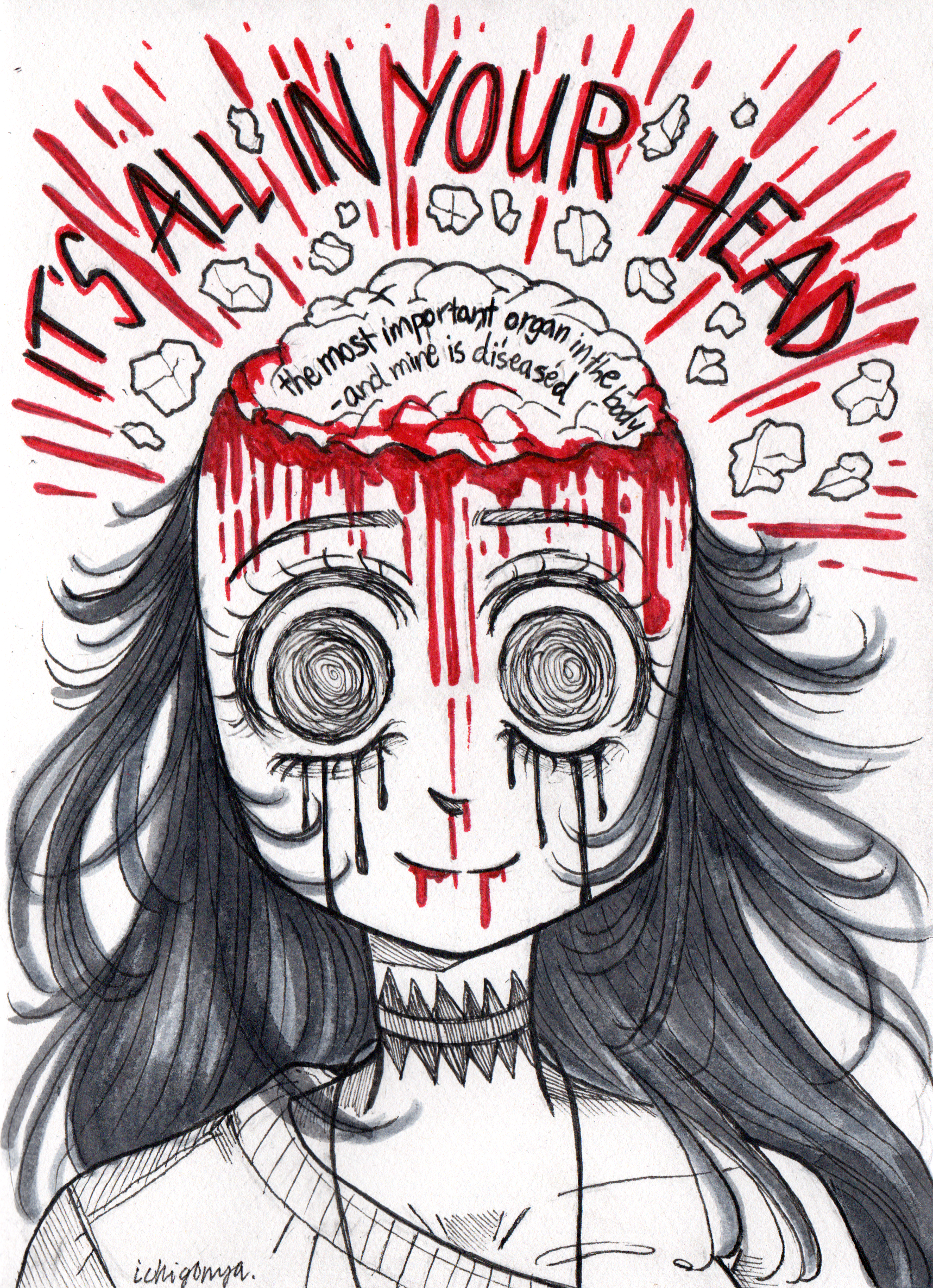The Brain Is An Organ
The history of medicine is very fascinating. I'm not claiming to be the most knowledgeable on it – and with my non-existent credentials, it would be insulting to say such a thing – but I am intrigued by the small bits of information I have managed to gather up in my noggin. Did you know that heroin was used as a cough medicine in the 1800's? Or that cocaine was used as a "wonder drug" of sorts, claimed to be able to cure depression, alcoholism, and impotence? Many of the now-deemed toxic chemicals were once used as medication for health problems. And of course, we can't forget lobotomy.
it’s all in your head.
My mother has asthma, and both of my parents have type 2 diabetes. For mom, her conditions were caused by genetics and terrible working conditions in a so-called mould school (we have a lot of those in Finland). For my dad, his diabetes is self-inflicted: his alcoholism caused him to be hospitalized due to pancreatitis six times, and over the decades, his pancreas suffered greatly from his addiction. (Also, every time I talk about my father's alcoholism, I have to mention that he has been sober for almost three years now, and he's doing very well! So proud of you, dad.)
When health problems persist due to the incurable nature of the illness, poor reception to treatment, or the patient's personal inability to commit to treatment, they can become chronic. Chronic illnesses are always there; they might not show any active symptoms, but they are still there, no matter if you acknowledge or recognize them or not.
Asthma is caused by long-term inflammation in the lungs. Diabetes is caused by the pancreas and its incapability to produce insulin properly or break down glucose in the digestive system. Lungs and pancreas are both organs of the human body – vital organs that we need to live. While lungs, liver, and pancreas are all extremely important, there is one organ that tops them all.
The brain.
Psychological conditions have been misunderstood, invalidated, and stigmatized all throughout the history of medicine. There is still so much that we do not know when it comes to the human brain and its functions, but it is safe to say that we now know a bit more than, let's say, in the 1940's when lobotomy was used to treat depression and epilepsy! But even with all the progression we have made and achieved so far, the persistence to mock, ridicule, and invalidate those of us with psychological disorders is still very very strong.
I'm going to take a wild guess here and claim that almost everyone with some type of a mental illness has been graciously advised by this one phrase:
"It's all in your head."
The phrase is meant to imply that since you are a human being with a brain and a mind of your own, you are in control of your thoughts, emotions, moods, and the like. It portrays the human mind as something completely boundless, with no limits, maybe based on the concept of free will that has been granted to every human being. I do believe in free will, as well, but there is a limit to it.
And that limit is when the most important organ in the human anatomy gets sick.
Yes, it is all in my head. That is where my brain is, after all. And while my mind might be glorious to some and absolutely horrendous to others, it is connected to my brain. And so, if my mind gets sick, so does my brain.
The brain is an organ; an organ I cannot exist without. An organ that cannot be replaced in transplants. My brain is me, I am my brain.
So please, tell me, how does my mental illness and trauma being "all in my head" make it any less valid of an illness than diabetes or asthma?
Getting used to it,
ichigonya
